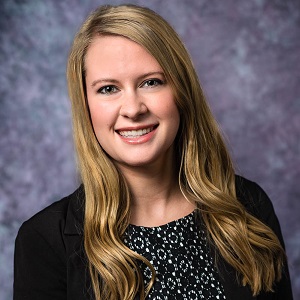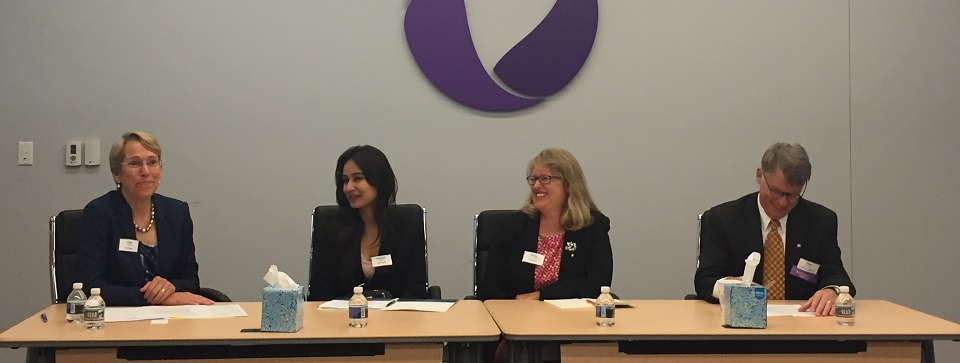
Meaghan Webster
Communications Manager
Atomic Pulse
Women continue to be underrepresented
in the field of nuclear security, and when they join it, they often find it
difficult to excel or, in some cases, even be heard. To examine this disparity
and explore ways to empower women in the field and make it more welcoming to
female experts, CRDF Global held a panel discussion this month, “Breaking
Barriers: Women in Nuclear Security.” Dozens of women (and a smattering of men) attended from
across government agencies, embassies, think tanks, advocacy groups and academia.
NTI president Joan Rohlfing
and 2017 CRDF Global Robin Copeland Memorial Fellow Urvashi
Rathore, who is
interning at NTI for the summer, were invited to share their
experiences building careers in nuclear security. Kathy Crandall Robinson of
Women in International Security also joined the panel, as did Paul Longsworth,
former NNSA Deputy Administrator and Vice President of Fluor Corporation. Susan
King, director of the nuclear security program at CRDF Global, moderated the
panel.
King opened the discussion by noting that “diversity breeds
innovation.” She challenged panelists to think about how the nuclear security
community can break down stereotypes that impede women in the workplace.
Drawing attention to a method
used by female staff at the White House, Rohlfing suggested that women should
make a point to amplify each other’s voices in the workplace when they notice a
colleague’s point of view not receiving the attention it deserves. Saying, “I
really want to hear from so-and-so about this,” is one way to do it, Rohlfing
said. Longsworth noted that men also have a role to play, advising them to be
aware of instances when women’s ideas are discounted or ignored in meetings.
The panelists agreed that the presence of female role models
in senior leadership positions is crucial to encouraging women to join and stay
in the nuclear security field and that mentorship is extremely important. “Finding
ways to acknowledge each other’s expertise and leadership” helps, noted
Crandall Robinson. In the absence of women in senior positions, “men can mentor
women, too,” Longsworth said.
Rathore recalled being questioned by peers in India for
aspiring to work on nuclear issues and being told that the field was “for men.”
She hopes to spread awareness of the possibilities for women in the nuclear and
radiological security fields and to inspire more women from India to consider
it a career option.
Although some progress
has been made to better integrate women into the nuclear security space, we
“still have a long way to go in shifting our culture,” Rohlfing noted. Many
women, in and outside of the nuclear security field, suffer from “imposter
syndrome,” or feelings that their “accomplishments are just luck or deceit,
and they’re in over their heads.” To combat this feeling, Rohlfing suggests women
surround themselves with supportive peers and mentors who will provide positive
feedback when it’s deserved. Longsworth compared overcoming the feeling to
running cross country: “If you push your body, you’ll be amazed at what you can
do. Your professional life should be the same.”
Read more about the work and careers of two of NTI’s female
experts: Dr.
Elizabeth Cameron, senior director for global biological policy and
programs, and Samantha
Pitts-Kiefer, director of NTI’s global nuclear policy program.
Sign up for our newsletter to get the latest on nuclear and biological threats.
Eugenia Zoloto is a Ukrainian artist who specializes in paper cutting, collages, and illustrations, in addition to working with oil paints and mixed mediums. She lives in Kyiv with her husband and two children and is participating in the 2023 #CranesForOurFuture campaign by contributing a beautiful floral sculpture featuring an origami crane.
Considering the current nuclear landscape, the power of Christopher Nolan’s film and the moral and ethical questions raised by J. Robert Oppenheimer’s work, movie viewers may be motivated to act to advocate for a world without nuclear weapons. But how?
If you want to learn more about Oppenheimer’s bomb and what we must do to protect the world today and for future generations, NTI’s online library is the perfect place to go.



